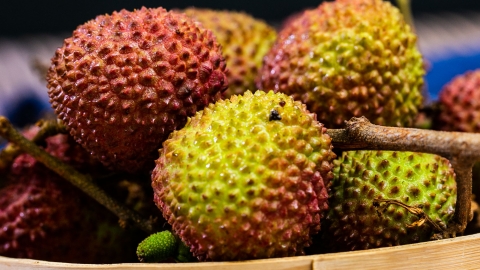Can I eat lychee after eating durian?
After eating durian, you may eat lychee, but the quantity should be controlled and based on your physical condition. Detailed explanation is as follows:

If you experience no discomfort such as abdominal bloating or dry mouth after eating durian, and your body's metabolic function is good, you may consume a small amount of lychee. Both durian and lychee are warm-natured fruits rich in sugar and vitamins. Eating a small amount of both in succession can provide energy, but there should be an interval of at least 30 minutes to allow digestion and avoid increasing the burden on the gastrointestinal tract.
If you have already experienced symptoms such as abdominal distension or excessive internal heat after eating durian, or if you have a weak gastrointestinal system or a naturally heat-prone constitution, you should avoid eating lychee afterward. Both fruits are high in calories and sugar; excessive consumption can increase internal heat, causing issues such as constipation and mouth ulcers. They may also cause a rapid increase in blood sugar levels and add stress to the digestive system. People with diabetes or sensitive gastrointestinal systems are particularly prone to discomfort from consuming these fruits together.
When consuming lychee after durian, control the total intake—combined consumption of both should not exceed 200 grams—and allow at least 30 minutes between eating each. If symptoms such as excessive internal heat or gastrointestinal discomfort occur, stop consumption immediately and drink plenty of warm water to alleviate symptoms.








